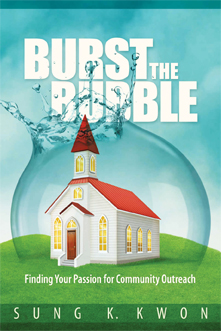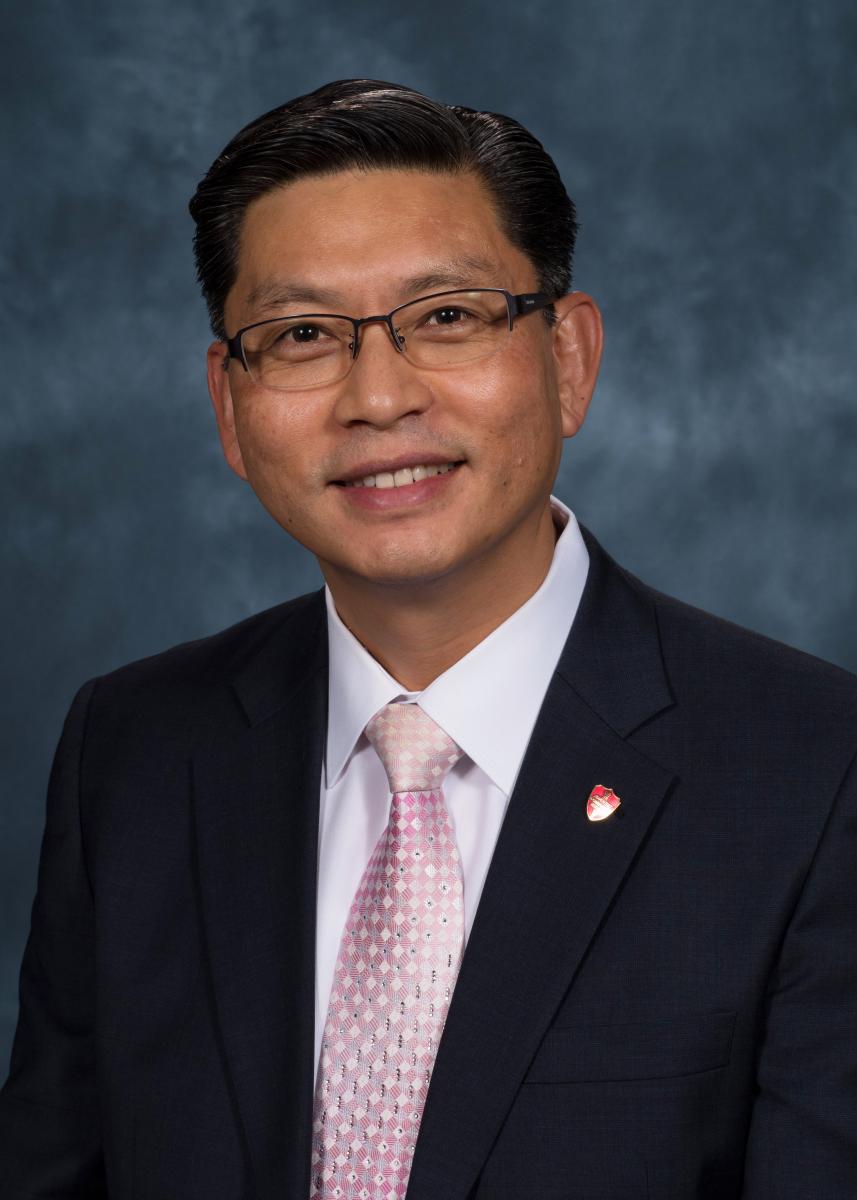
Book Release: Burst the Bubble
 Interview by Alexis A. Goring
Interview by Alexis A. Goring
Seventh-day Adventists sometimes tend to “do life” in their own bubble of sorts—speaking their own church language (GC, haystacks, AY), socializing with people who believe like they do and even shopping in special stores, says Sung Kwon, executive director of the North American Division Adventist Community Services, and a member of Chesapeake Conference’s Spencerville church in Silver Spring, Md.
In his book, Burst the Bubble, Kwon challenges Adventist readers to “burst the bubble” and engage the community in what he calls “life on life evangelism.”
Read more about his book in the interview below:
Visitor: What is your book about?
Kwon: Burst the Bubble was designed for pastors and church members who are interested in connecting the church with the community through “life on life evangelism.”
We need Christian disciples who order their lives on missionary purposes and believe they are responsible for fulfilling the Great Commission.
We need to share, care and proclaim the Good News of God’s redemptive work. People need to see us as a recognizable, tangible and visible sign of the Kingdom of God in their community. We have to become that faithful presence of God’s Kingdom and a sign of salvation.
Visitor: What do you mean by “life on life evangelism?”
 Kwon: It’s you building a relationship. It’s about you getting to know people at the grocery store—your cashier’s name—and your banker’s name at the bank. You don’t just do a business transaction; you build relationships at your school, at your work. Wherever you are, you are there as the recognizable, visible, tangible sign of the Kingdom of God.
Kwon: It’s you building a relationship. It’s about you getting to know people at the grocery store—your cashier’s name—and your banker’s name at the bank. You don’t just do a business transaction; you build relationships at your school, at your work. Wherever you are, you are there as the recognizable, visible, tangible sign of the Kingdom of God.
Sometimes we have very artificial relationships with people even in the church. We don’t interact with anybody in church during the weekdays. We don’t call each other or pray for one another. We don’t have any engagement outside the four walls of the church. So that is very artificial. We have to be connected to the people. We have to understand their uncertainty of life so that we can minister to their needs, not only physical, mental and social, but also spiritual. But you cannot do that unless you build that life on life engagement.
Visitor: What is the inspiration behind your book’s title?
Kwon: It was recommended by Pacific Press®. My suggestion was “Jesus Ate Sushi.” I guess they didn’t think that was an appropriate title. But I like this title. After reading it, the Pacific Press staff thought the book was challenging us to come out of the “Adventist bubble.”
We talk our language, we behave within our cultural context, we have our own values and customs and we are very comfortable living in that Adventist bubble. But community outreach ministry is based on being relevant to our community and connecting our church with the community. In order to do that, you really have to come out of your Adventist bubble.
Visitor: Who is your target audience for this book? Why?
Kwon: This book is for [all] church members, including pastors and church conference leaders. This book is not just for Adventists, but all Christians. My wife actually gave this book to her co-worker who is Baptist, and he said, “Wow! This book is so relevant to our church.”
We have to really change our focus. It’s not about “my church growth”; it’s about the Kingdom of God. Having more buildings does not mean that we have influence over people.
This book is to help non-Christians understand what the church is about. There’s a bumper sticker that says, “Yes, Jesus. But no church.” It breaks my heart every time I see it. Why? I want to tell people that church is not all that bad; church has a lot to offer. I [want to help] secular people understand church is about the Kingdom of God and our Lord Jesus Christ.
For more information about the book, click here.

Add new comment